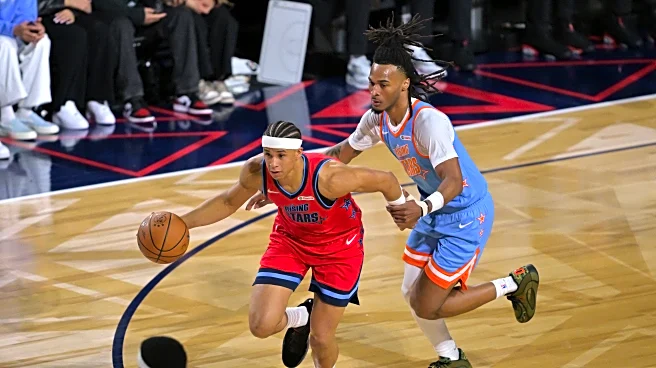Rapid Read • 7 min read
EA Sports has released its latest college football video game, 'College Football 26,' which includes a simulated season for 2025. The simulation predicts conference champions, Heisman Trophy winners, and College Football Playoff (CFP) outcomes. Clemson and Oregon are predicted to win their respective conferences, while Florida and Texas Tech are expected to capture the SEC and Big 12 titles, respectively. The simulation also forecasts a surprising run by Ole Miss, advancing to the national championship game. Ohio State's wide receiver Jeremiah Smith is projected to win the Heisman Trophy, marking a significant achievement for the Buckeyes.
AD
The simulation offers insights into potential outcomes for the upcoming college football season, influencing fan expectations and discussions. It highlights the competitive nature of college football, with unexpected teams like Ole Miss making significant strides. The prediction of Jeremiah Smith as a Heisman winner underscores the evolving role of wide receivers in the sport. These simulations can impact betting markets and fan engagement, as they provide a speculative look at team performances and individual achievements.
As the actual 2025 college football season unfolds, teams and players will strive to meet or exceed these simulated expectations. Fans and analysts will closely watch key matchups and player performances, particularly those highlighted in the simulation. The real-world outcomes may differ, but the simulation sets a narrative for the season, influencing media coverage and fan discussions.
The simulation reflects broader trends in college football, such as the increasing importance of offensive strategies and the prominence of non-traditional powerhouses. It also raises questions about the accuracy and influence of video game simulations in sports forecasting. The cultural impact of these simulations extends beyond the game, affecting fan culture and engagement with college football.
AD
More Stories You Might Enjoy












